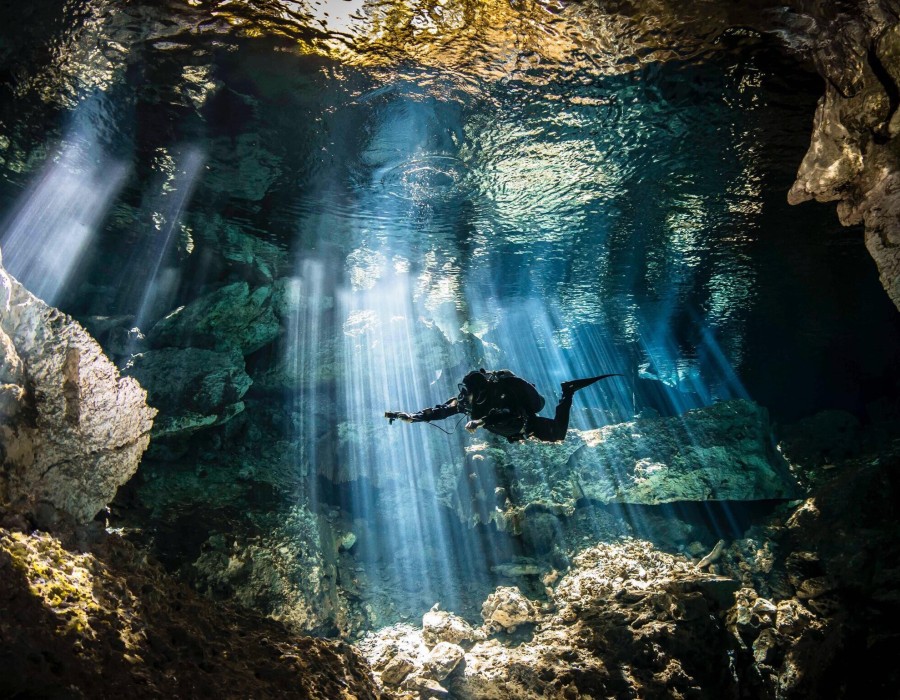Beneath the surface of our planet lies a realm of astonishing beauty and intrigue - a world that only a handful of brave souls have had the privilege to explore. Cavern diving, often referred to as cenote diving in specific regions, offers a unique and exhilarating opportunity to venture into the heart of Earth's geological wonders. It's a fascinating fusion of adventure, science, and awe-inspiring sights that has captivated divers from all around the globe.
Unveiling the Mystique of Cavern Diving:
Cavern diving takes the traditional underwater experience to an entirely new level. Unlike open-water diving, where divers explore expansive seascapes, cavern diving involves navigating through submerged caves, tunnels, and passageways. These natural formations, sculpted over millions of years, offer an enchanting tapestry of geological marvels. The unique environment boasts intricate stalactites, stalagmites, and other mesmerizing rock formations that create a visual spectacle beyond imagination.
Cenote Diving: Mexico's Gift to the Diving World:
Cenotes, which are natural sinkholes filled with crystal-clear groundwater, are one of the most iconic locations for cavern diving. The combination of the vibrant turquoise water and the interplay of light filtering through the openings above creates an almost otherworldly ambiance.
The Blend of Adventure and Caution:
Cavern diving offers an unparalleled sense of adventure, but it comes with its own set of challenges and risks. Unlike open-water diving, where an ascent to the surface is easily accessible, navigating through submerged cave systems requires meticulous planning, specialized training, and the right equipment. Divers must be prepared to deal with tight spaces, limited visibility, potential disorientation, and the importance of maintaining proper buoyancy to avoid damaging delicate formations.
The Importance of Training and Preparation:
Due to the unique demands of cavern diving, specialized training is imperative. Divers undergo rigorous courses to learn essential skills such as line handling, buoyancy control, and emergency procedures specific to cave environments. Cave diving organizations provide certifications that ensure divers are well-prepared and capable of handling the challenges that come with exploring the depths of these submerged labyrinths.
Environmental Conservation and Responsible Diving:
Preserving the fragile ecosystems within cave systems is of paramount importance. The delicate formations, intricate ecosystems, and historical significance of these underwater caves necessitate responsible diving practices. Divers are educated on how to minimize their impact on the environment and follow guidelines to protect these natural wonders for generations to come.
The Spiritual and Visual Feast:
Beyond the adrenaline rush and the scientific exploration, cavern diving offers a profoundly spiritual experience. The quietude of the underwater world, the play of light on the rocks, and the feeling of being a silent observer in a realm untouched by time create a meditative and almost ethereal atmosphere.
In Conclusion:
Cavern diving, particularly cenote diving, is a gateway to a world that few have the privilege to witness. It's a captivating blend of adventure, scientific curiosity, and natural wonder. As divers immerse themselves in these subterranean realms, they become part of a select group that appreciates the hidden treasures our planet holds. With proper training, respect for the environment, and a thirst for exploration, cavern diving can be an awe-inspiring and transformative experience that reshapes one's perception of the Earth's mysteries.
For more info:-





Comments